Climate change is now a matter of fact. Numerous pieces of data support the claim that human impact is having an unquestionable impact on this negative process. However, we have the tools, and we have the opportunity to reverse these effects – we just need to prepare for this serious fight. Prof. Mark Maslin pointed this out at the BCSDH Business Breakfast and Forum on May 10, focusing on the now-launched Time to Transform 2030 program, which aims for system-wide change.
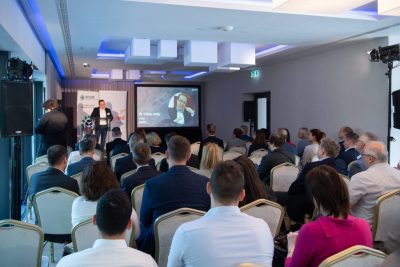
Mark Maslin, FRGS, FRSA, and professor of Earth Systems Science at the University College of London, as well as the author of 2021’s How to Save Our Planet: The Facts, called for action and was guaranteed to equip everyone with the knowledge they need to change at the Business Breakfast and Time to Transform 2030 Forum of the Hungarian Business Council for Sustainable Development (BCSDH).
It is time to face the facts and realize that the relevant knowledge and technology are already in our hands and that companies must play a leading role. The business breakfast of BCSDH, with its 120 member companies that account for 30% of Hungary’s GDP, was followed by a workshop with the participation of CEOs and experts to identify domestic goals, opportunities, and challenges in the key areas of the now-debuting Time to Transform 2030 program.
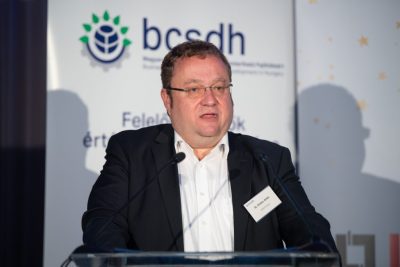
In his introductory remarks, Attila Chikán Jr., President of BCSDH, emphasized: “Now is the time to act. The pace and extent of change so far is less than expected. We still have a tight time window for the fundamental and immediate transformation of our systems, with companies playing a leading role. Science has made it clear what needs to be done; economic actors need to take the necessary steps to do it. Transformation requires a change of approach that fundamentally changes the way business leaders view the short and long term. That’s what our Time to Transform 2030 program is all about.”
The world is facing three critical challenges: a climate emergency, the loss of natural diversity, and growing social inequality. The global average temperature is already around 1.2°C above pre-industrial levels, 68% of wildlife has already been lost, the richest 1% of society own 44% of global wealth, and the poorest 50% barely 2%.
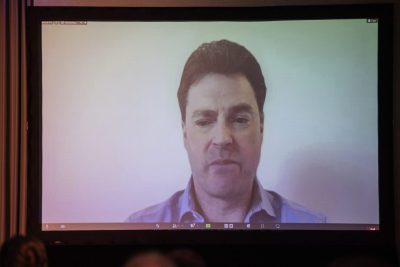
“Climate data is disappointing, but no matter how bad the environment is, [the situation] can be reversed and we have all the tools at hand. These changes must start from bringing individuals together. Small deeds, when multiplied by millions of people, can change the world. But it is a life-and-death struggle for our planet with ourselves for ourselves. Individuals, governments and companies need to work together. In addition to accelerating the process by innovating and transforming their own activities, businesses need to help change individuals, change consumer habits, [and] help them to play a role in the fight against climate change, to support local communities, and create platforms” Professor Mark Maslin explained.
The guest of surprise at the event was Maryna Saprykina, managing director of CSR Ukraine, who presented concrete ways in which domestic companies can help them in the current situation.
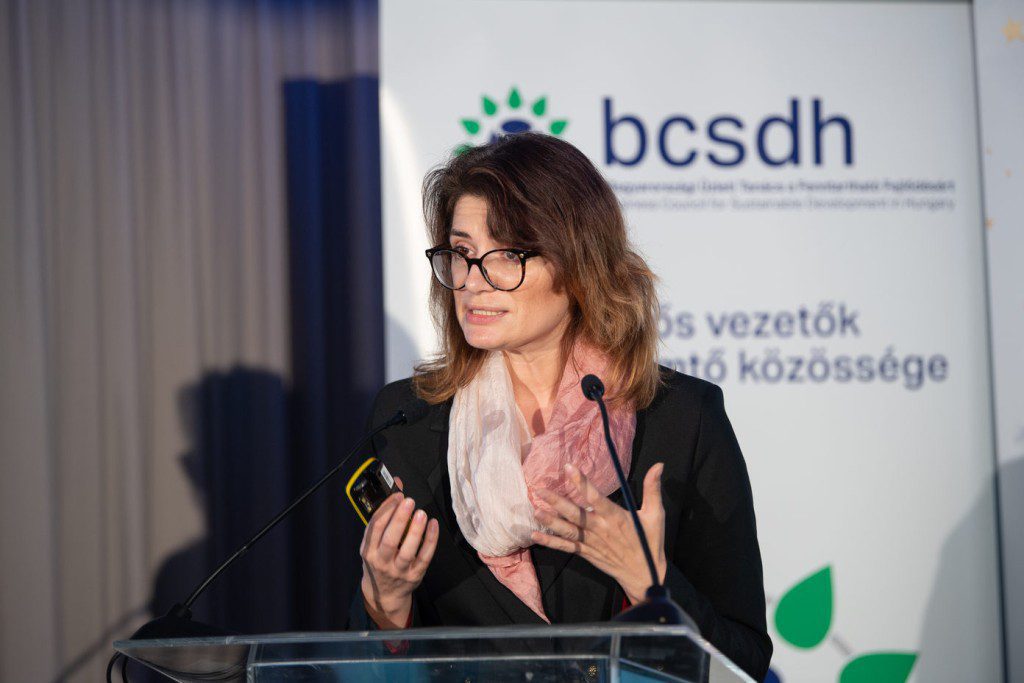
According to preliminary data from the ongoing BCSDH Corporate Maturity Survey, the respondent organizations intend to increase their commitment to net-zero greenhouse gas emissions and biodiversity by 2025. At the same time, for most of them sustainability indicators are incorporated into management to a lesser extent than the development of this vision – i.e., economic considerations still often override sustainability needs.
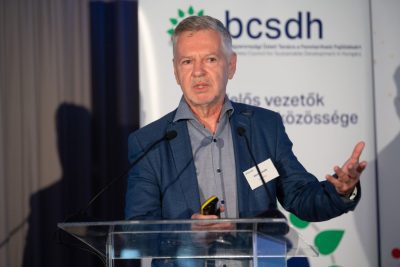
“It’s time to do more than just talk about sustainability, carbon neutrality. This is our last chance not to have to suffer the harshest effects of climate change. It is not easy for a company to operate profitably and sustainably at the same time. In the short run, these solutions may be more expensive, but in the long run, these transformations will make companies more resilient and competitive. The goal is to preserve the Earth for future generations, and that can only be succeed together, bringing together consumers, business leaders and government decision-makers. ”– Added László Károlyi, CEO of Legrand Zrt., Host of the event.
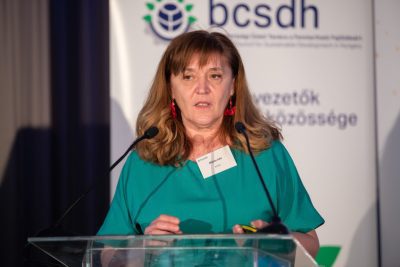
“The goals of our vision are still achievable. But the next eight years are critical, and every single day counts. This decade of BCSDH is defined by the Time to Transform 2030 program, which builds on the results of Action 2020. The three key elements of the program are the nine Paths and the Action Plan to 2050, the high level of commitment of our members, and the maximum transparency that embraces them” – said Irén Márta, Managing Director of BCSDH, when presenting the new program.
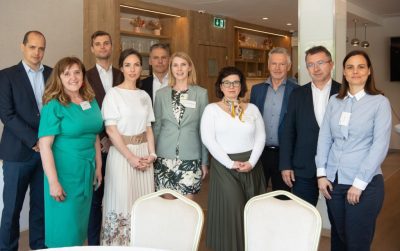 | 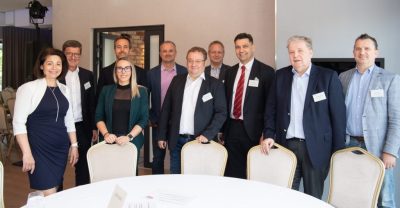 |
The business breakfast was followed by the Time to Transform 2030 Professional Forum, the primary aim of which is to initiate joint thinking and define the domestic goals associated with the nine paths of the new program.
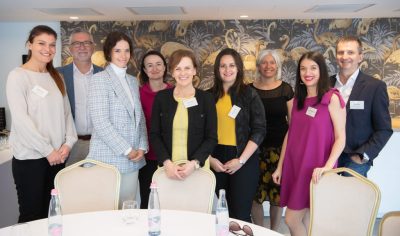 |  |
*****
Prof. Mark Maslin, FRGS, FRSA.
Mark Maslin FRGS, FRSA, is a Professor of Earth System Science at UCL. He is the Director of Rezatec Limited, Founding Director of the London NERC Doctoral Training Partnership, a member of the Cheltenham Science Festival Advisory Board, a CSR Board member of Sopra-Steria, NetZeroNow and Sheep Included Ltd. and a member of the Climate Crisis Advisory Group.
Maslin is a leading scientist with a particular interest in understanding climate change and the major challenges facing humanity in the 21st century. He has published over 180 papers in journals such as Science, Nature, and The Lancet. He was the climatologist on the original 2009 The Lancet report on climate change and global health and has been one of the authors of the annual Lancet Countdown reports since 2015.
Mark has written 10 books and over 60 popular articles (e.g., for New Scientist, Independent, Guardian, Telegraph, New York Times and The Conversation). His latest book is How to save our planet: the facts (Penguin, 2021).
Mark also co-founded Rezatec Ltd. in 2012, which employs 50 staff, and is now one of the world’s leading geospatial analytics companies, providing AI “big data” solutions to environmental issues for companies, NGOs, and local and national governments. Mark is also the UNFCCC-designated point of contact and COP26 lead for UCL.
